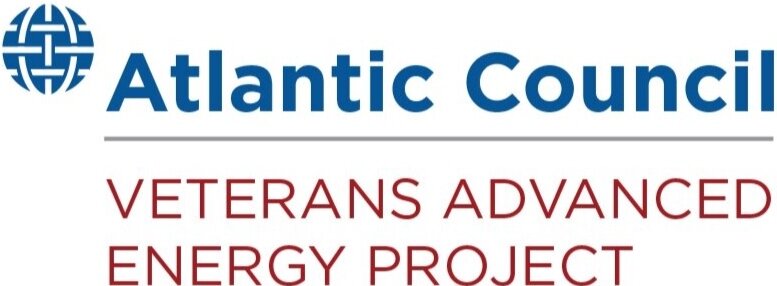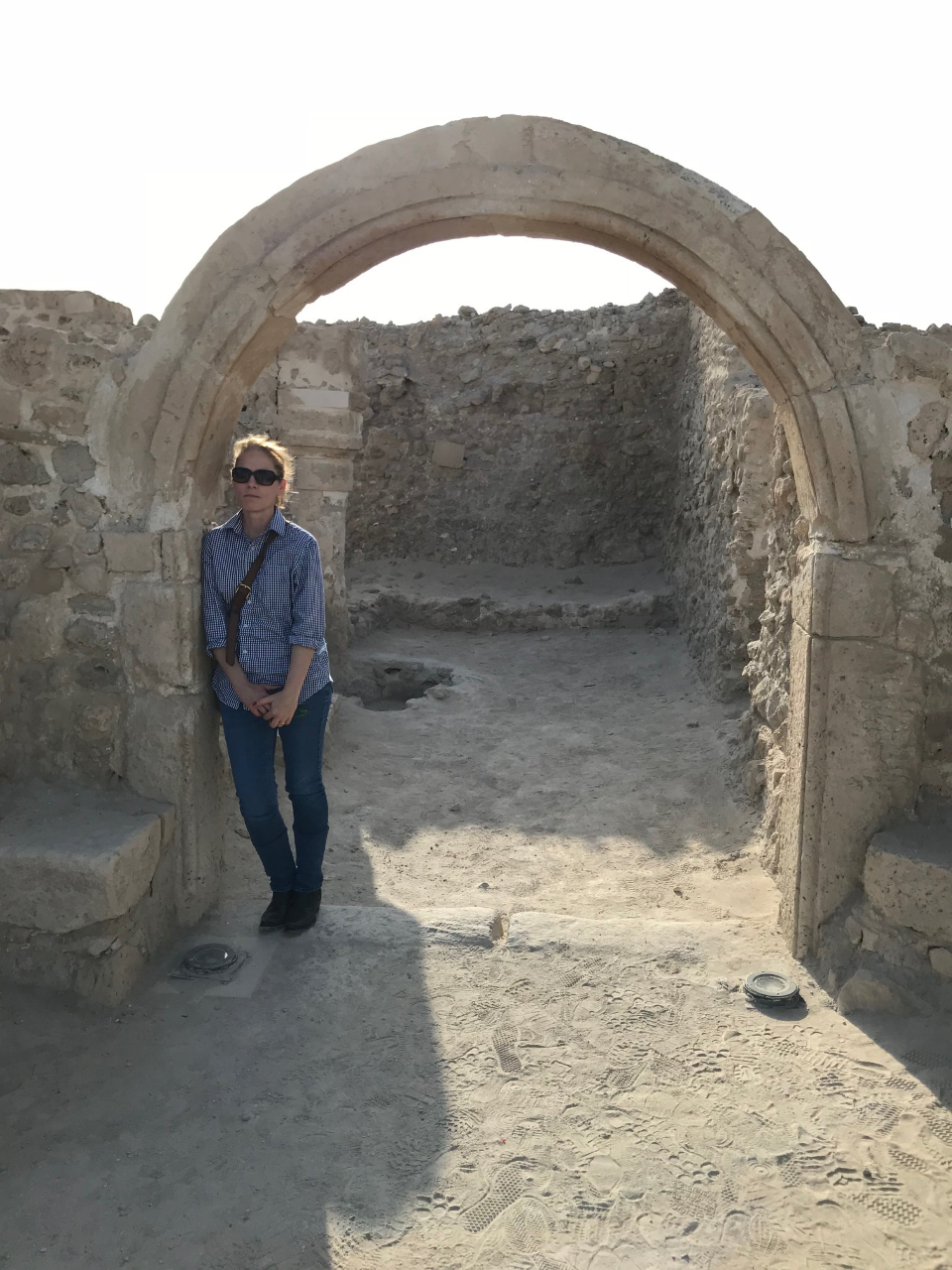Veterans in Advanced Energy Profile: Sara Lechtenberg-Kasten
/Sara Lechtenberg-kasten, a 2021-2022 Veterans advanced energy fellow. click the button below to learn more about the fellowship.
Sara Lechtenberg-Kasten, a 2021-2022 Veterans Advanced Energy Fellow and US Army military spouse, is using her experiences as a US diplomat and researcher to help provide equitable and sustainable access to energy in developing countries because, she says, energy is an economic, social, and political driver in our day-to-day lives. As told to Jordan Bekenstein
What is your affiliation with the military?
I have been an Army spouse for twenty-four years, so I’m part of what they call the Honorable Order of the Silent Ranks. My husband was in the US Army infantry when we were married, but I’ve never been a traditional Army spouse. Other than for a very short time when we were newlyweds living at Fort Bragg in North Carolina, we have never lived on a military base. As a reservist, we’ve always lived in the community. It’s a very different experience as a reservist wife compared to an Army family living on a base.
Also, my dad was a Marine. In the Midwest, you see a value system where it’s normalized. Most of my cousins have served. I didn’t grow up thinking that was a job for me, but now my kids have thought about it too. When you look at the demographics of how many people join the military from Texas or across the South, there are parts of our nation where we draw more heavily upon their service. It’s interesting.
How did the military influence your career trajectory into energy?
I had been a research analyst for the US Department of Defense (DoD), and when we moved home to Kansas, I helped DoD with different studies related to social issues. At the time, the government had all kinds of shutdowns— I thought this was a sign to look for a new job. We were in the middle of an important study on the role of women in the military, and we had hard deliverable times while being told we may not be able to work. That’s not respectful to the soldier, that’s not respectful to my professionalism, and it was a wakeup call. Earlier in my career, I had worked overseas as a diplomat in the Foreign Service, and I reached out to a colleague who said he had taken a position in Saudi Arabia. He recruited me to come and join his team at King Abdullah Petroleum Studies and Research Center (KAPSARC). I can look at things from an environmental justice lens, but I had never really thought of energy as an enabler of dignity or an enabler of human rights. They recruited me to work on energy access in the least-developed countries and how to promote a high-energy future. It merged my training as an advocate and a diplomat — and then I had to learn everything from a tech and energy mix perspective.
LECHTENBERG-KASTEN ON A research trip in QAL’AT AL Bahrain for kapsarc’s resilient cities in the gulf cooperation council
What are you most excited about in advanced energy developments, and what are you most concerned about?
I’m most excited about the way that technology is going to make the affordability of energy storage more accessible. We’re getting to a point where the know-how is catching up, so we can have an energy mix with renewables that are supplemented by other sources when you don’t have enough storage. We’re not necessarily ever going to be able to get 100% off hydrocarbons, so the question is how can we mitigate the downside of them and enhance the renewable side.
What I’m most concerned about is when science becomes politicized. When we look at energy mix, it should be done from a cost-benefit analysis. Putting some of the conventional wisdom aside, we should say, what does the science say? What does a lifecycle analysis say about renewables? I find people are religious about renewables and they don’t realize that renewables can’t really give the continuity right now to ensure that everyone can go zero-carbon sources of energy. We still have to catch up with storage issues. I was naïve to think, “let’s just do renewables everywhere.” Well, for a high-energy future in Namibia, why do they only get renewables? Why would we not be able to think of an energy mix there? Did any country in the history of the world build a strong economy on just renewables? No. How do we go about international development in a way that we’re using our foreign aid in a smart way. How do you reduce the politics around energy domestically so that we can get to the best investments, especially in infrastructure?
Why is energy important to US national security?
You can look at energy from different lenses. Politically, think about the energy disruptions in Texas last winter or blackouts in New York City — heads are going to roll from a political perspective, even if the elected leader doesn’t really have a whole lot to do with it. Economically, our ability to grow an economy without access to energy is really limited. Socially, think about your life if you don’t have access to energy for 48-hours. Our lives depend on filling up the tank with gas, getting on the metro, cooking something for our families. The internet shuts down if we don’t have energy access. Through all these lenses, access to affordable and sustainable energy is a driver throughout all aspects of life.
I was a Fulbright scholar in Haiti, and after a three or four-day blackout, tensions were high. Then, all of a sudden, the current comes back, and you could hear the whole city cheering at the same time. They were never able to build a grid that was reliable in Port-au-Prince. What if instead of throwing $18 million to revise the Haitian justice system – FYI, it still doesn’t work – we were able to retarget some to energy access? People could build livelihoods, start businesses, and economically provide for their families. I’m not saying to forget human, civil, and political rights, but I am interested in what targeting more funding for energy infrastructure can accomplish.
Do you have advice you would like to share with other military spouses?
lechtenberg-kasten and family welome her husband home from deployment to afghanistan
The advice depends on what phase of life you’re in. If you’re a newlywed, your problems are one thing; if you have babies, your challenges are something else; and, if you’re in the retirement phase, the advice really has to be tailored to the person you’re talking to. Military spouses have so much education, yet the challenge will always be that the person at home has to have the job with greater flexibility. When I was a young mom and overwhelmed, my mom said, “You just got to get yourself organized and take it day by day.” It was tough mom advice, but you have to be in it as a team and use all of the resources available through the military. Also, network, because most of the Army community wants to see the spouses succeed too. The Army family cares in this era more than ever that both the service member and the spouse can be a team and be fulfilled.
What are you most looking forward to about the Veterans Advanced Energy Fellowship?
Within a career, you always have to be learning more, and the events that we’re doing are like reading six books — but instead of having to spend all that time reading, you have an hour of power round, you’re taking notes, and you have that “a-ha” moment, like I hadn’t thought of lifecycle analysis for photovoltaics that way ever before. It is forcing me to up my game from a tech perspective. I also appreciate that they’re bringing in senior leaders, from the Payne Institute or Argonne National Laboratory — getting visibility on thought leaders in the industry is helpful.
When I was applying for my Fulbright scholarship, one of the interview questions was, “how will you contribute to the Fulbright program,” because it’s not a one-and-done deal. As a Fulbrighter, you are part of an alumni program, and you’re required to continue in that kind of public service — I think that the Veterans Advanced Energy Fellowship ultimately will end up having that same identity affiliation group.





